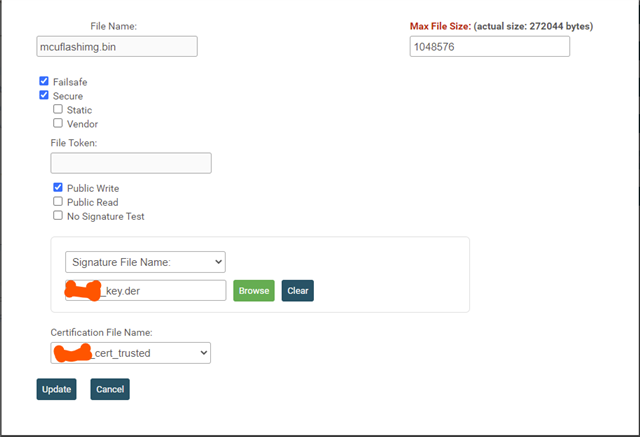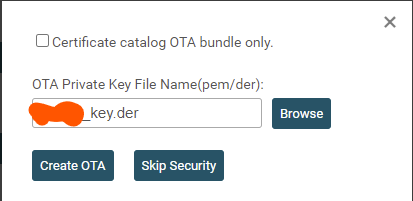Other Parts Discussed in Thread: UNIFLASH
Hello,
I try to implement an OTA update. mcuflashimg.bin is signed and flashed with OTP and vendor catalog over UART successfully. That works well without any security/certificate problems.
When I'm trying to flash via OTA the procedure fails with OtaArchive status=-20199. I think it is because the OTA is created without security/private key. When I try to create the OTA with the vendor private key, it fails with "Error: Create Basic OTA Error: Wrong key file".
I'm using
SImpleLink SDK 6.10
UniFlash 8.6

Creating the OTA


Which key should I use?
Thanks!
Sebastian

